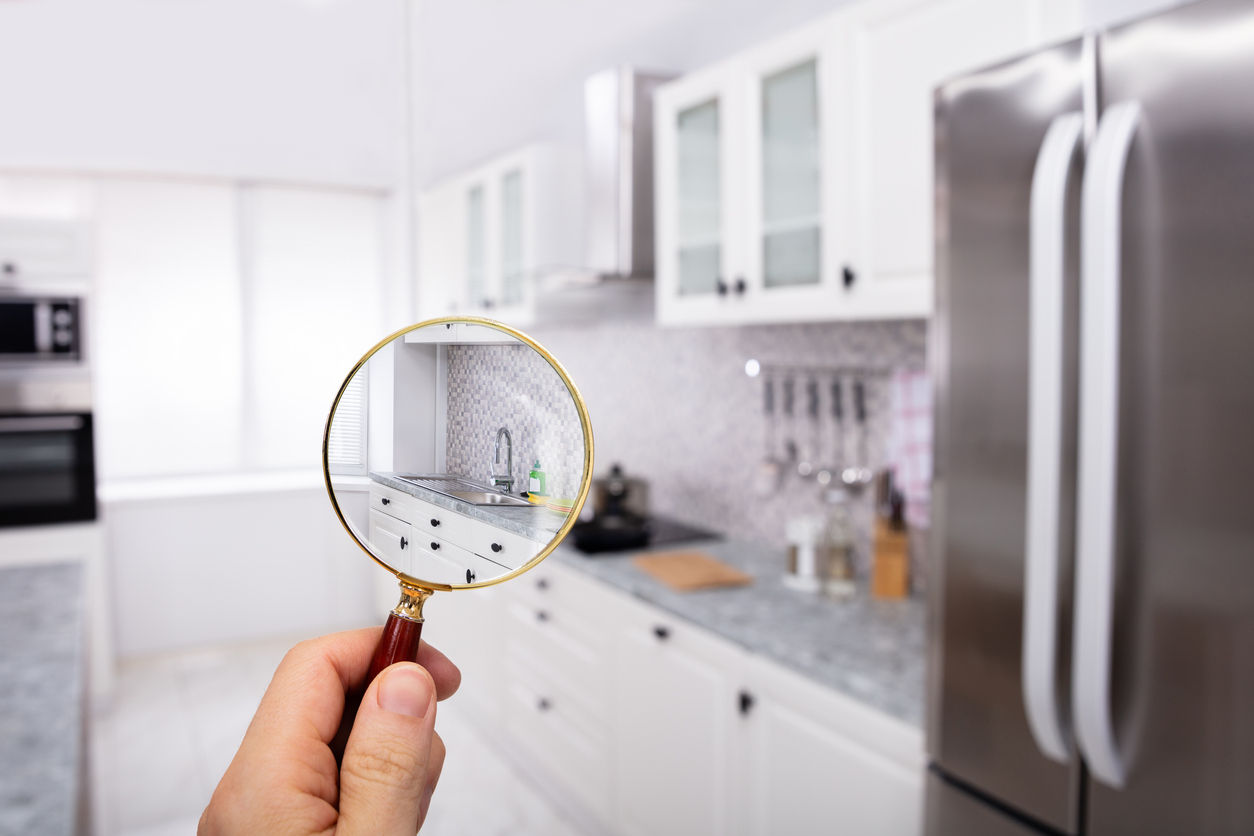Should I Buy a House Now or Wait For a Recession?
More than half of Americans (56%) believe the United States is in a recession, despite evidence to the contrary. Even though the economy is growing, many people feel pinched by high costs of living and inflation. The 2024 Presidential Election is also making people nervous, with some people believing the outcome will determine economic futures.
The potential for a recession is also affecting the home-buying decisions of Americans. There are beliefs that a recession can cause the housing bubble to burst, causing prices to plummet. They believe it would also increase inventory and cause interest rates to drop, making loans cheaper.
However, these ideas aren’t always backed by economic realities. Even if the United States falls into a recession in 2024, the housing market might not react how people want. There could be serious implications for who can afford to buy and who is left in an uncomfortable housing situation.
This article is neither calling for a recession nor denying the existence of one. It will simply explore the factors, strategies, pros, and cons of potential buyers entering the market during a recession. Here’s what you need to know when asking, “Should I buy a house now or wait for a recession?”
What Happens to the Housing Market During a Recession?
There is some truth that recessions create buyer’s markets. Home prices drop, opening doors for buyers who want to get better deals on their homes. However, the housing market slows down as a whole. Some homeowners wait to enter the market until the period of uncertainty ends while other buyers put their house-hunting plans on hold.
For active buyers, the home search may take longer because there are fewer homes to look at. If you have specific housing needs in mind – like a desirable neighborhood where you want to live – you could end up waiting months to find your ideal home.
When the housing market slows, the Federal Reserve tends to lower interest rates. This is another good thing for buyers. It means their loans will be cheaper and they can afford a larger home. Buyers who were previously priced out of the market could potentially afford homes with a combination of low prices and lower interest rates.
However, lower interest rates can also come with drawbacks. Some homeowners have been waiting for interest rates to drop so they can increase their home prices again. When buyers pay less to the banks, they can put more toward their principals. This side effect could cause the housing market to slow even further during a recession because housing prices remain high, even when interest rates are low.
In short, there’s no guarantee that a recession will cause a flood of affordable houses that can be purchased at low rates. There are too many moving pieces that would need to create a perfect storm to make that happen.
Pros of Buying a House During a Recession
There are multiple perceived benefits of buying a house during a recession. Here are a few reasons why potential buyers are eager for the economy to take a downturn in the next year or two.
Lower Home Prices
Home prices tend to drop during a recession. However, this has less to do with macroeconomic trends and more to do with supply and demand dynamics. When employment is high, the ability for people to buy homes is high. This means home prices increase and the housing supply drops.
Recessions are often associated with reduced income and layoffs, meaning fewer people can afford homes. The number of buyers in the market drops, causing homeowners to lower prices to accommodate more buyers in their area.
If you can maintain your current income and employment, then you may have an opportunity to take advantage of lower home prices during the recession.
Less Competition
Recessions tend to pull buyers from the market, shifting the housing environment from a seller’s market to a buyer’s market. In a seller’s market, there are more buyers than available houses. This means some homeowners might receive multiple offers, enjoy bidding wars, and have short periods before they are under contract.
When there is a recession, a lot of buyers leave the market because they can no longer afford to purchase a home. Sellers are left lowering prices to accommodate the remaining buyers to attract them to their properties. The sellers also might be more willing to make concessions.
This power shift could be a good thing for potential buyers. They can be aggressive when bidding on homes, knowing that sellers have fewer options on the table.
Favorable Interest Rates
When the housing market starts to slow down, the Federal Reserve jumps into action. This government organization wants to prevent a severe economic downturn and will adjust interest rates to make borrowing more affordable.
The goal of this change is to empower more buyers to enter the market who might have been pushed out by high rates or inflated home prices.
Buyers could get favorable mortgage rates if they buy during a recession because banks want more people to take out loans. This could potentially be a good thing for current homeowners who want to refinance their mortgages.
Cons of Buying a House During a Recession
While many people believe they can take advantage of a looming recession to get good deals on housing, there are some significant disadvantages of waiting to buy a house. Here are a few reasons why you might not want to wait for an economic downturn to take action.
Economic Uncertainty
One of the biggest assumptions that potential buyers have when hoping to buy during a recession is that they will not be affected. No one knows which industries will suffer the most in a looming recession, but most will experience some negative consequences either directly or indirectly. Many people could lose their jobs, forcing them to use the savings they had for a down payment on other life expenses.
You likely won’t be able to take advantage of a housing market crash if you are unemployed, especially because many mortgage lenders look at employment history when approving loans.
Potential for Further Price Drops
One of the most common sayings in investing is “buy low, sell high,” and many potential buyers want to follow that during the recession. They are hoping for a housing market crash that makes home prices cheap so they can grow their wealth as their investments appreciate.
However, there’s always a risk that home prices drop even further. You could watch your home values drop in the years after you move in because the recession is getting worse. Not only is this a missed opportunity because you didn’t wait for prices to drop more, but you could have a hard time selling if your mortgage is more than your home’s value. You could be stuck in your home longer than you want.
Tighter Lending Standards
Just because the Fed drops interest rates doesn’t mean it will be easier to qualify for a mortgage. Recessions mean there is more risk for lenders who approve loans. A buyer could close on a house, lose their job, and then miss payments on their mortgage. The bank could eventually foreclose on the property, causing the institution to lose money.
You may find that it is harder to buy a house during a recession. Fewer banks might be willing to work with you and they might charge extra fees and closing costs to approve your loan. You might not be able to take advantage of the lower mortgage rates you crave.
Not Ideal for Buyers Who Need to Sell
While first-time homebuyers might be excited about entering the market during a recession, current homeowners will feel stressed. They could be worried about their home values falling below their current mortgages, preventing them from selling. They also might not want to sell when home prices are low, reducing their profits.
Stressed homeowners can slow the local market down. Fewer homeowners will move and many will feel stressed about selling their current home before buying the next one. The sellers that enter the market might be forced to because of layoffs and other economic uncertainty that prevents them from keeping up with their homes.
Factors to Consider When Buying During a Recession
The best way to decide whether you should buy a house during a recession is to look at your personal finances and make decisions based on what is right for your specific situation. Don’t let fearmongers push you out of the local market and don’t rush to buy because someone claims now is the best time. Take a deep breath and evaluate these different factors when making your decision.
Personal Financial Stability
Evaluate your current down payment, emergency savings, and credit score. Regardless of the current economy, these factors will determine how likely lenders are to approve your loan. If your down payment would make you “house rich but cash poor,” meaning you don’t have a lot of money saved up, it might be better to avoid buying or providing a smaller down payment.
Think about the worst-case scenarios that could happen because of a recession or during one. If you lose your job (and your partner, if you have one, loses theirs) you could struggle to make your mortgage payments and find work at a time when countless other Americans also need jobs.
Consider how many months you could make it without a job after you buy a house. Know that emergencies could wipe out your savings unexpectedly. No one wants to face the worst-case scenario but that could be a reality if the economy is bad.
Long-Term Investment Potential
It’s important to buy a house that you will love living in, but you also want to keep resale potential in mind. Think about the demand for specific properties and the potential drawbacks of certain homes that could prevent them from selling. For example, buying a cheap house might give you a small mortgage, but could also have limited resale value. Selling could be harder when the time comes if the neighborhood isn’t desirable or the home is too small for the area.
Look at houses as an investor would consider potential properties. Make sure the buildings you tour are likely to be in demand regardless of the economy. This will make it easier to move when the time comes.
Market Research
Regardless of whether you buy during a recession or when the economy is thriving, you still need to do market research. Macroeconomic trends like mortgage rates can affect certain markets, but other issues could slow or speed up buying.
For example, the weather has more of an impact than you might expect. Hot summer temperatures might keep buyers away from warm climates but make them desirable in the winter. In hurricane-prone states, sellers might be more willing to negotiate so they can move before storm season starts.
There are parts of the United States where the housing market is cooling, which is good news for buyers. However, there are plenty of areas that are still competitive and prices are rising. Start tracking median home price trends in your area to see what you can expect to pay in your desired neighborhood and property size.
How to Buy a House During a Recession
Once you decide that now is the ideal time to buy a house, you can move forward with the purchase process. Here are a few steps to take if you are buying a house during a recession.
Work with a Qualified Real Estate Agent
Your best resource in an uncertain real estate market is an experienced agent. Look for someone who has worked through recessions before and knows how to stay competitive during difficult times. Not only can this person help you identify properties you might be interested in, but they can work to overcome hurdles created by the seller, listing agent, and mortgage broker.
You don’t have to be an expert in real estate with a seasoned Realtor by your side. Check out some of the agents at FastExpert to find one who you feel comfortable and excited about working with.
Get Pre-Approved for a Mortgage
Start talking to lenders to better understand the pre-approval process. There is a significant difference between being pre-qualified and pre-approved. You are pre-qualified when you answer questions about your savings, income, and debts to a mortgage lender. You are pre-approved when that lender confirms this information and identifies the amount they are willing to give you.
Getting pre-approved is essential when buying a house in a competitive market or a recession. It proves to sellers that you can get financing and the deal is more likely to go through. If a buyer doesn’t get a loan, the seller has to relist the property. This delays their moving plans and extends their uncertainty about selling.
Pre-approval can also speed up the loan process and help you overcome lending hurdles. It’s worth your time to get pre-approved so you can move forward with the loan application process with confidence.
Be Prepared for a Longer Buying Process
Patience is one of your biggest assets when buying during a recession. Finding a home might take longer if there are fewer houses available. Be ready to spend multiple weeks – and potentially even months – looking for a home.
While home prices generally fall and sellers are more willing to work with buyers, you may find that some sellers are stubborn, further testing your patience. They might not want to make concessions, cede closing costs, or negotiate at the rate the market demands.
Finally, the closing process could also take longer because lenders are more cautious. In times of economic uncertainty, they want to take more time reviewing loan applications and doing their due diligence. Be prepared to submit more documents related to your financial health to assure your lender that you are a trustworthy borrower.
However, these efforts could pay off in the end if you find a house that you fall in love with.
Consider Alternative Financing Options
If you are worried about getting a loan during a recession, look into additional financing options. For example, you might qualify for FHA loans that require smaller down payments, allowing you to keep your nest egg intact. VA loans and USDA loans offer minimal down payments and favorable rates. You might not even need to pay private mortgage insurance (PMI) if you use one of these programs.
Many financial institutions want to keep the economy going during a recession. You can find people who want to work with you and make homeownership possible.
Consider Your Personal Financial Situation Before Buying
The answer to “Should I buy a house now or wait for a recession?” is complicated and depends on the personal finance options of each buyer. Some people might benefit from entering the housing market now so they can enjoy a stable mortgage and find a home they love before the market turns. Other people might get lucky and purchase an affordable home during an economic downturn.
The first steps when buying a house are to consult a personal finance advisor and talk to a real estate agent. These two professionals can look at your down payment, monthly income, debts, current mortgage rates, and the housing market to determine if you can afford a house. They also might help you set a reasonable budget in the area. Your goal is to find a house you love, not just one you can afford, so don’t rush into the market just because of economic trends.
To find a real estate agent in your area, Try FastExpert. Learn about local Realtors and their specialties, whether you are a first-time homebuyer looking for support or a seasoned buyer interested in investing. You can find your perfect fit at FastExpert. Check out our service today.




